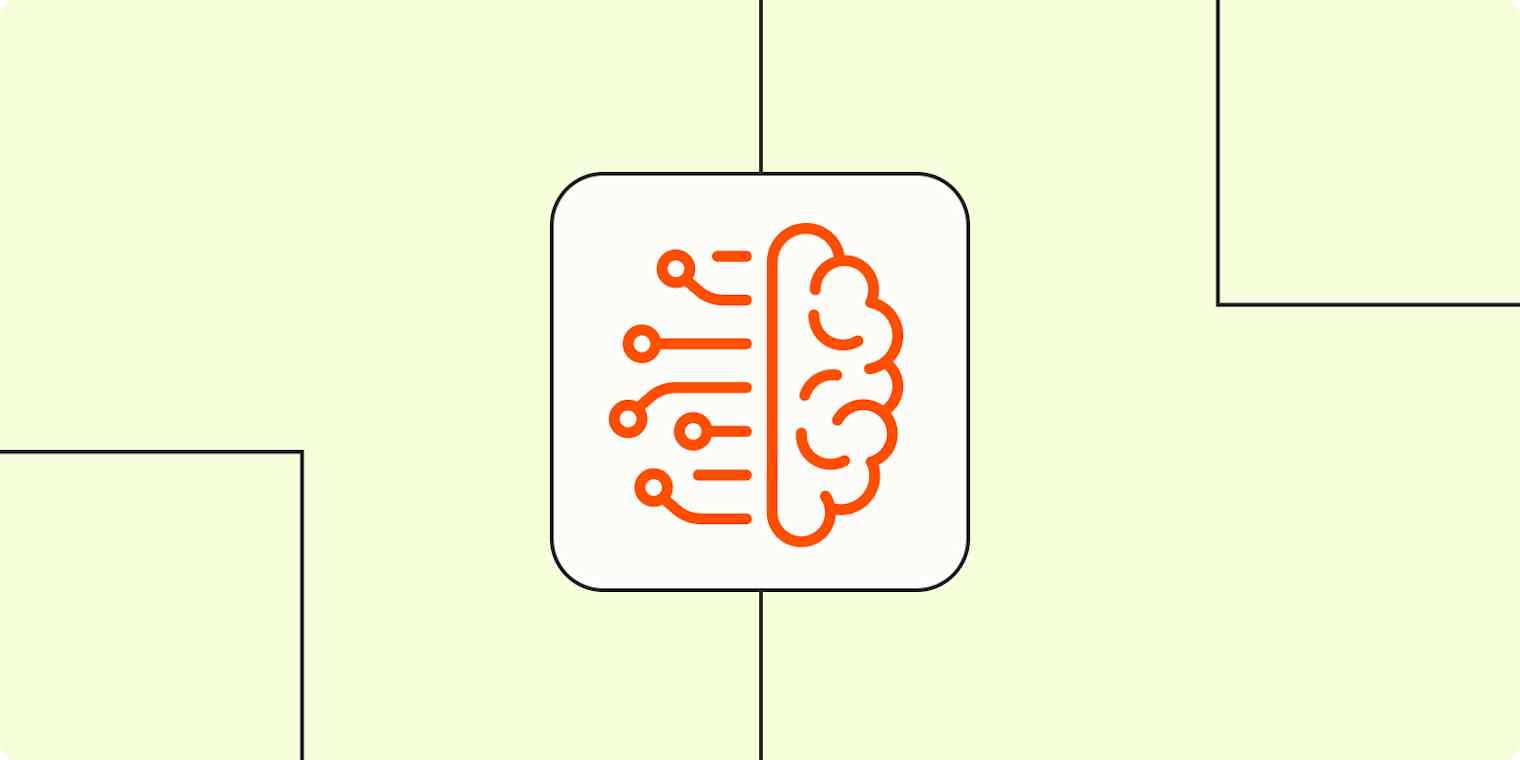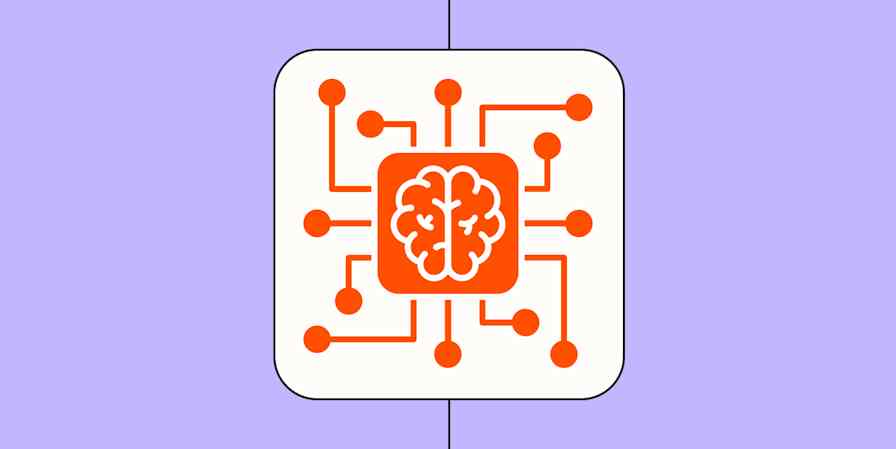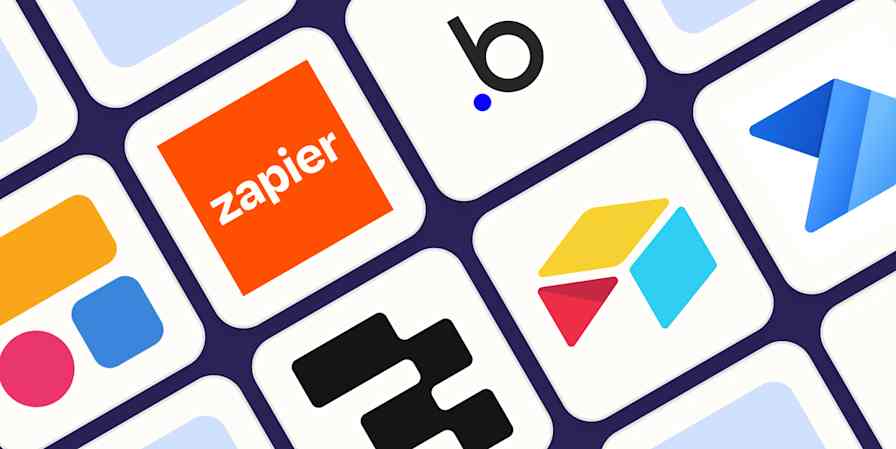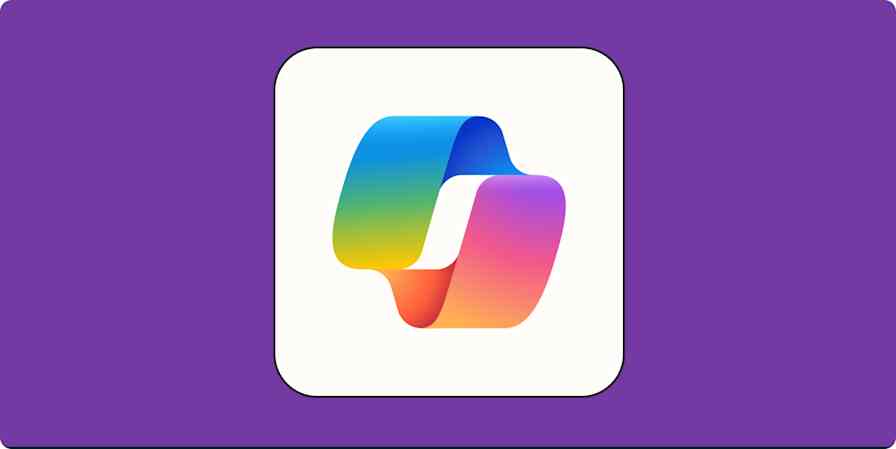Just like any new technology, AI is going to change how we work. But even as we come to grips with a world where AI works alongside us, it can still be hard to envision what that future will look like. If you're still picturing HAL or WALL-E or other all-caps robots with human intelligence, you're not alone.
To help bring us back to reality, we asked folks across various industries and roles how they envision AI changing the way they work and the way their business is run. Here's what they said.
15 ways that AI technology will change the way people work
1. Reduce time-consuming tasks
"AI has the potential to drastically reduce the time that professionals spend on repetitive tasks, freeing them up to focus on more high-value work and streamlining their work processes.
With the help of AI tools, legal professionals, for example, can automate tasks, such as searching for relevant documents, drafting basic communication briefs for clients, and managing scheduling and other administrative tasks. AI can also assist in legal research by scanning and analyzing vast amounts of information and presenting the most relevant information to legal professionals. AI can do a manual process in minutes, which would normally take hours.
By automating tasks, AI can help people work more efficiently, increase productivity, and ultimately provide better service to their clients."
Mark Pierce, CEO, Wyoming LLC Attorney
2. Optimize ad targeting
"This is already happening with many of the ad platforms (e.g., Google and Facebook), but it will soon become the new norm: AI will automate ad targeting completely, optimizing ads as it navigates through the data and applies tons of minor changes in real-time.
Most (good) ad agencies will change their ad targeting now and then, but those changes are "bigger": nobody can make minor changes every day, or every hour, and track the minimal effects they may have. AI, however, will do that on autopilot. This will make it so that ad agencies have to focus much more on the creative—they'll need to create the best ad possible.
It used to be that if you nailed down the right audience, then all you had to do was show them the product. But soon that same audience will see all the products they're interested in, so it will be more about making your ad creative stand out from the rest."
Rafael Romis, CEO, Weberous
3. Increase predictive analytics insights
"AI is transforming the IT recruiting industry in several ways. One of the most significant advancements is in the use of predictive analytics insights, which allow employers to build candidate profiles based on behavior patterns they've observed from past applicants over a certain period. And that leads us nicely into another way AI has changed IT recruitment: enhanced data-driven decision-making capabilities.
Social media platforms are now being mined by AI solutions, looking for clues about an applicant's interests and fit within an organization—helping organizations make better hiring decisions faster than ever before."
Travis Lindemoen, Managing Director, nexus IT group
4. Enhance the customer experience

"AI has the potential to improve customer service in various industries, including mine (wedding photography). AI-powered chatbots can provide customers with quick and accurate answers to their questions, while sophisticated voice recognition tools can automate tasks like scheduling appointments and booking services.
I still do much of my client interfacing manually, but on the editing side, there's one tool I love! We used AI-driven image recognition capabilities to sort through large amounts of photos quickly and accurately. This helps me provide my clients with high-quality images in a fraction of the time it would take me to sort through them. AI is truly revolutionizing the photography industry, and I'm excited about what's still to come."
Stephanie Jenkins, Founder, Stephanie Jenkins Photo
5. Revolutionize UX research
"In the coming years, the democratization of AI will transform UX research through low- to no-code tools. These tools will enable all researchers to access previously unavailable AI capabilities.
For instance, speech-to-text and large language models will transcribe and translate between languages, making cross-linguistic research more accessible. Natural language processing will help with code and analysis by analyzing text data and performing entity extraction, topic modeling, and sentiment analysis. Computer vision will help identify patterns and themes in visual data, such as photos and videos. Network analysis will help researchers make sense of online networks and relationships within bodies of text.
These techniques will enhance researchers' capabilities, enabling them to collect, analyze, and interpret qualitative and quantitative data in UX research more efficiently, leading to new insights and discoveries."
Matt Artz, Business Anthropologist, Matt Artz
6. Overhaul search engine marketing
"AI will bring significant changes to digital marketing, especially when it comes to search engine results. Once simple queries on Google are answered natively by AI, search engine traffic will lose a lot of its power.
This was easy to see coming. A few years ago, if you wanted to know how much $100 was worth in UK pounds, you would have to navigate to a foreign exchange website to get the answer. But since Google introduced no-click content, you never even have to click to get the answer.
All the websites that used to benefit from this traffic lost it quickly, and I think the same thing will happen at scale across all industries once AI is fully implemented in search engines."
Shane McEvoy, MD, Flycast Media
7. Automate claims processing
"AI can automate claims processing in the insurance industry, which reduces the time and cost associated with manual processing—while also increasing accuracy. AI-powered algorithms will help automatically process, evaluate, and validate claims, freeing employees to focus on more complex tasks.
In addition, AI can help reduce human error in the claims process by using predictive analytics to determine the likelihood of fraudulent claims and analyzing past claims to identify trends and patterns."
Anthony Martin, Founder and CEO, Choice Mutual
8. Impact invoice factoring
"There are many ways AI will (and is already starting to) impact invoice factoring. Not only will it streamline the processes through automation, but it will also be more secure for all parties involved.
The detection of fraud through pattern recognition and the ability to conduct risk assessments with a broader wealth of data is just the tip of the iceberg for how AI will make the process smooth and secure for us and our clients.
Ultimately, there will be fewer administrative headaches, less human error, and fewer opportunities for fraudulent activity overall."
Gates Little, President and CEO, altLINE
9. Create difficulty in assessing applications
"Ever since the launch of ChatGPT, we've seen an increase in candidates using AI to generate cover letters and even assessment tasks sent by employers.
It's unclear when OpenAI will launch their "fingerprint" technology that will recognize AI-generated text, so for now, HR managers have to use various AI checkers to make sure their candidates aren't using AI to generate answers to test questions—and even to generate entire lines of code during dev pre-employment assessments."
Gordana Sretenovic, Co-Founder, Workello
10. Generate detailed customer personalization

"As the CEO of a health website, I'm looking to leverage artificial intelligence (AI) to improve customer personalization and create an optimal user experience. By leveraging AI capabilities like natural language processing (NLP), machine learning, and predictive analytics, I can provide customers with information tailored to their needs.
AI-driven customer personalization will give my website the ability to adjust advice based on factors like age, gender, health history, lifestyle preferences, and more. AI can also analyze user search patterns in order to expect what topics customers might be interested in and provide information before the user even searches for it.
AI-enhanced customer personalization helps create a more customized experience and also allows us to generate more relevant advice based on individual needs."
Erik Pham, CEO, Health Canal
11. Create faster, better route planning
"AI is already an integral part of route-planning software like ours. While the technology constantly improves for faster, more accurate, and more intuitive route planning and navigation, advanced AI will transform it even further.
You'll match with the right to address the first time around more often. Voice-based navigation will become more natural and conversational for even better use while operating hands-free. And its predictions of estimated arrival times, traffic updates, and route planning will all continue to improve, as AI can analyze larger datasets faster for smarter predictions."
Jack Underwood, CEO and Co-Founder, Circuit
12. Advance accuracy and speed of risk assessment
"AI algorithms can analyze vast amounts of data, including historical claims data, weather patterns, and demographic information, to identify risk factors and predict the likelihood of future claims.
By using AI to assess risk, insurance companies can improve the accuracy of their underwriting and pricing decisions, leading to more personalized and fair insurance policies for customers. AI can also help insurers detect fraud by analyzing patterns of behavior and identifying anomalies in claims data."
Brad Cummins, Founder, Insurance Geek
13. Maximize cost optimization
"The cloud services industry is an increasingly competitive landscape, and AI helps us maximize our cost optimization efforts.
We're leveraging AI to identify areas of our business in need of optimization by analyzing large amounts of data and uncovering hidden patterns. AI-powered analytics platforms provide valuable insights that can help us better predict customer demand and adjust our operations accordingly. By utilizing AI for cost optimization, we can be more competitive in the market, even during a recession."
Karl Robinson, CEO, Logicata
14. Provide early signs of disengagement
"As an education and training provider, we plan to leverage AI by using it to predict which students are most likely to drop out of our training programs. We plan to implement machine learning algorithms that can analyze student data and provide early warning signs of disengagement or potential dropout risks.
This will allow us to intervene early and provide targeted support to students who are struggling, which we believe will ultimately improve retention rates and student outcomes. By using AI to identify potential dropouts, we can allocate our resources more effectively and efficiently, which will benefit both our business and our students."
Derek Bruce, Senior Director, Newcastle First Aid Courses
15. Reshape the way we work
"Our team leverages AI to streamline content creation, including email builds, blog posts, and social media posts, as well as using it as a research tool. To ensure that we use AI effectively and efficiently, we view it as a team member and are constantly honing our skills as program engineers. This enables us to communicate effectively with the AI programs we use and maximize the benefits they provide."
Douglas Ferguson, President, Voltage Control
It's too early to understand the impact AI will have on our jobs, but one thing is clear: it's going to affect every industry in some way. Embrace it now, or you'll be playing a lot of catch-up down the line.
Related reading:









